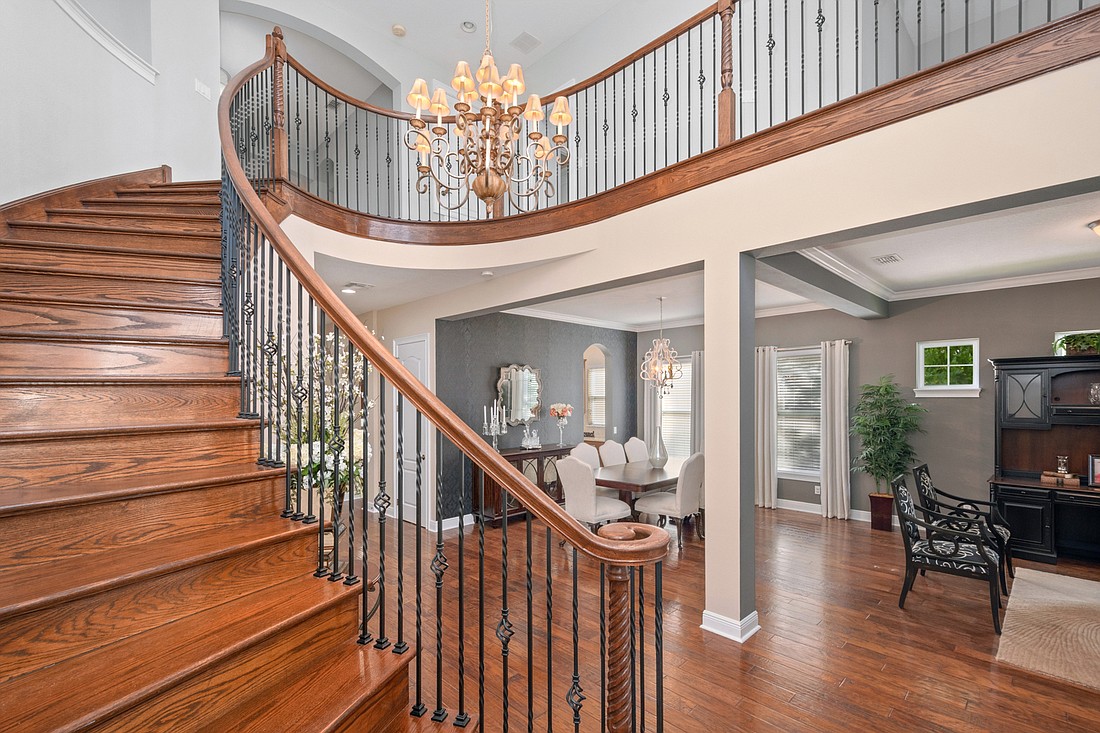- December 13, 2025
-
-
Loading

Loading

While the coronavirus pandemic has halted many facets of the economy, Central Florida’s real-estate market currently remains steadfast in the face of it.
According to the Orlando Regional REALTOR Association, Orlando’s housing market in March saw home sales improve by nearly 2% compared to March 2019. Additionally, the median price increased by 8%.
However, ORRA President Reese Stewart said in a press release, it may be another month or two before seeing any solid evidence of the impact COVID-19 has had on the real-estate market.
“Because of the amount of time it traditionally takes a home to move through the transaction process (an average of 37 days in March), the properties that closed in March most likely went under contract sometime in February — before the stock market declines and stay-at-home orders,” he said.
In West Orange, some Realtors have adapted the way they interact with buyers and sellers by using technology for virtual showings and meetings. Others still are showing homes while following CDC recommendations and social-distancing guidelines.
Local Realtor Renee Funk, owner/partner at The Funk Collection, said her team is in a unique situation because it is brokered by eXp Realty, which is cloud-based. On the operational side, eXp Realty has been holding trainings and classes and connecting with team members virtually for years now.
This also has made it easier for their team on the transactional side. A month ago, The Funk Collection began serving its clients with all-virtual showings, buyer consultations, listing appointments and open houses.
“Essentially, nearly the entire transactional process can be handled and facilitated virtually and remotely,” Funk said. “That’s new for our team, because culturally in the past, you don’t typically work remotely with the consumer. … The consumer has adapted to that as a new way, which has a positive effect on business that we’re actually quite excited for.
“A silver lining is the consumer has now become more open to the adoptions of certain remote technologies, which enables us as Realtors to implement more efficiencies that will benefit both the customer and agents as we move forward.” — Renee Funk
“A silver lining is the consumer has now become more open to the adoptions of certain remote technologies, which enables us as Realtors to implement more efficiencies that will benefit both the customer and agents as we move forward — even when we come out on the other side of whatever our new normal will be,” she said.
Although the real-estate industry is deemed an essential service and her team could continue traditional interactions with their clients, Funk said she wants to have every protocol in place for the customer. The company uses 360-degree tours and video walk-throughs, which especially help when buyers cannot go see the homes themselves.
Jane Dunkelberger, a Realtor with UPSIDE Real Estate Group, works primarily with new home construction and vacation homes. She believes now is a good time for buyers to invest. However, she also has seen mixed responses from agents and sellers.
“Some builders are continuing to build, and some have stopped and are only selling inventory homes,” Dunkelberger said. “Incentives are good and interest rates are low right now for buyers … but at the same time, I can’t get agents to call me back. I was trying to book showings, and I don’t know if people are afraid to show their houses or agents are afraid to work. Out of five homes that I called to show, only one agent got back to me. … It’s a crazy time to me. You’re either crazy busy or it’s like crickets for you.”
At Clock Tower Realty, Realtor Denise Gregorie said the West Orange market remains busy. She still is conducting showings in person, ensuring both she and her clients wear masks and only she touches surfaces in the homes.
She also has been doing virtual walk-through videos, in which she takes her customers inside and outside the home to make them feel as if they’re walking through the home with her.
“There are a lot of reasons people are moving, and there’s a lot of jobs that are allowing them to continue to move,” Gregorie said. “They’re serious buyers, and they’re coming. I’m doing the virtual walk-through videos that I think are helpful. … They are looking through and getting what they can from what we provide them.”
Gregorie said she has not been holding open houses, but the showings are done with every precaution and social-distancing guideline in mind. She only touches surfaces with gloved hands and ensures everything is disinfected.
“Selling or buying a house isn’t a last-minute thing,” she said. “This has been in the works for a long time for a lot of people. It’s still a hot market. People have to move. I’m doing everything I can to keep selling and helping everyone, but I’m also protecting myself and everyone else. There’s some that will hang back and say, ‘Let’s wait until this passes,’ but I see it as, ‘Let’s move on and keep going.’ If we do it right and we do it safe, I think we’re all right.”
Funk said she has seen the pace slowing a bit. However, it’s too early to identify trends.
“If we look at the number of contracts coming in right now, there has been a dip. … We will likely feel the impact of what is happening right now in the next couple of months, but the degree of what that is is still uncertain,” Funk said. “At the end of the day, what we realize is people still need to buy and sell a home. Customers still have housing needs. We’re still transactional. We’re still listing homes and representing buyers.”
Overall, Stewart said, ORRA is confident in the long-term strength of Orlando’s real-estate market.
“It’s important to remember that we’re in a global pandemic, not a real-estate recession,” Stewart said.